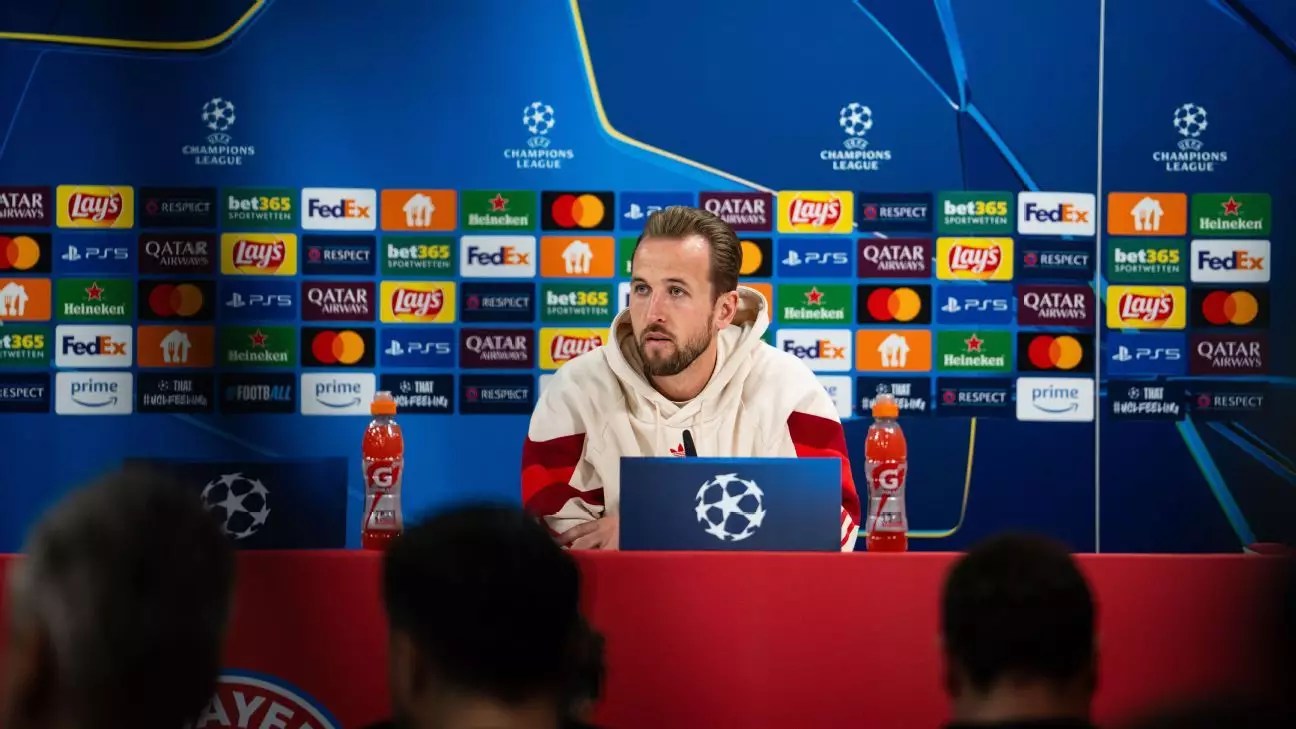Harry Kane, a name synonymous with goal-scoring prowess in football, recently found himself at the center of controversy sparked by Dietmar Hamann’s critical remarks regarding his performance in significant matches. While Kane has enjoyed remarkable personal success since joining Bayern Munich from Tottenham in 2023, the critique highlights broader expectations placed on high-profile athletes, especially in pivotal competitions. Kane’s response and performance metrics suggest a nuanced debate about what defines success for a player of his caliber.
The Weight of Expectations
When former players and pundits weigh in on contemporary athletes, their words can have a profound effect. Hamann’s claim that Kane hasn’t been impactful enough in crucial matches refers not just to individual games, but to the wider expectations from players who command hefty transfer fees and salaries. Kane’s price tag, reported to be around £100 million, elevates expectations significantly. Fans and analysts anticipate that such investments should yield performances that lead to triumphs in major contests, including Bundesliga clashes against titans like Bayer Leverkusen and significant fixtures in the Champions League.
Despite accumulating 64 goals and 21 assists during his tenure in Germany, critics focus on the absence of decisive performances during crucial moments, which is an unfair assessment without considering the broader context. The weight of expectation can lead to a critical narrative that may not reflect a player’s overall contributions to the team’s success.
Harry Kane’s statistics are nothing short of impressive: scoring 36 goals in his debut Bundesliga campaign and eclipsing the record for the fastest player to reach 50 goals in the league are definitive proof of his striking ability. However, statistics in football are not always indicative of overall influence on the game. Goals are essential, but a forward’s impact also extends to playmaking, creating opportunities, and influencing team morale.
Kane himself mentioned that he values his contributions beyond just goals, stating his intention to assist the team in every possible way. This perspective is critical when assessing the role of a striker, especially in high-octane environments where synergy and teamwork can dictate outcomes.
Kane’s assertions about his performances against top opponents, such as Dortmund and Stuttgart, challenge the skepticism surrounding his big-game effectiveness. However, with the phrase “scoring against lower-tier teams isn’t enough” resonating in Hamann’s criticism, Kane finds himself under a microscope—expected to rise to the occasion against heavyweights in every match. The pressure intensifies in venues like the Allianz Arena, where Bayern prepares to face formidable adversaries like Paris Saint-Germain in the Champions League.
This leads to a vital question: how accountable should a single player be for team performance? Football is fundamentally a collaborative sport, and attributing success or failure solely to one individual overlooks the complexities of teamwork and strategy.
The Broader Narrative and Future Implications
Kane’s future with Bayern Munich—his pursuit of a major trophy—is intertwined with individual accolades and public perception. While he seeks to etch his name in history by winning trophies, the weight of expectation continues to loom large. Hamann’s critiques, while they may seem harsh, pivot the conversation towards what success looks like for elite players in the modern game.
As Bayern faces critical matches to salvage their standing in both the Bundesliga and the Champions League, resilience and performance will dictate Kane’s legacy. The challenges he faces are not just those of in-game execution, but equally significant are the narratives constructed around his career. The discourse surrounding critical moments and big-game performances will likely persist but will do well to consider the player’s entire context in the tapestry of a complex sport.
In the world of professional sports, scrutiny is a constant companion. Harry Kane’s journey continues to be marked by stellar performances amid harsh critiques, but it’s essential to acknowledge the broader environment of expectations. As he prepares for upcoming challenges, both he and the football community might benefit by shifting the focus from individual failings to the collective efforts of the team, recognizing that in football, it often takes more than one player to claim victory in the biggest of moments.


Leave a Reply